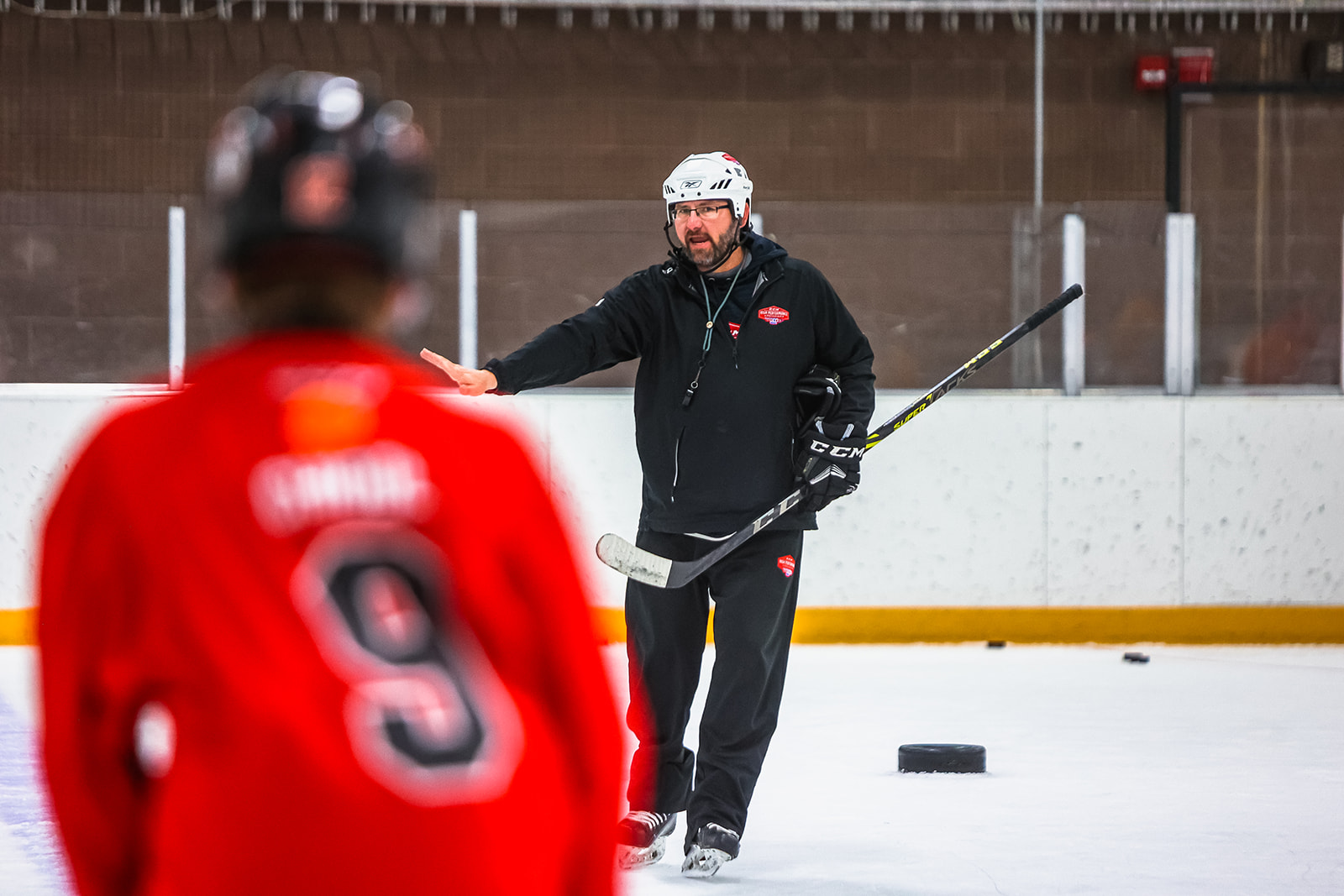
So, we’ve talked about how cognitive training with IntelliGym has the potential to increase hockey IQ, complement your physical training and reduce injuries in ice hockey players. But let’s take a closer look at the evidence and into the impact it can have on players’ games and their safety.
To further support the hypothesis that cognitive training can lead to injury reduction, IntelliGym decided to conduct a comprehensive analysis. Jacob Greenshpan, Ph.D., the Research Director for IntelliGym, examined medical data from USA Hockey. The focus was on the National Team Development Program (NTDP), which integrated the Hockey IntelliGym into its training routine starting in the 2017 season.
Dr. Greenshpan compared pre-training data from 2017 to 2019 with post-training data from 2019 and 2020, specifically looking at the performance of the USA Hockey NTDP U17 and U18 athletes. The findings were remarkable: the players experienced a staggering 42% increase in points per game within just one season of incorporating the IntelliGym into their training regimen.
However, the benefits didn’t stop there. Greenshpan also observed a significant reduction in injury-related doctor visits, hockey-related injuries, and total head injuries in the two years following integrating the Hockey IntelliGym into the NTDP program. These compelling results were presented at the IIHF International Youth Coaching Symposium in Helsinki, Finland, during the IIHF Ice Hockey World Championship. In fact, IntelliGym remains the official cognitive trainer of the USA Hockey NTDP to this day.
While the initial findings of this study present promising implications, it is crucial to emphasize the necessity of replicating the study with a larger sample size in order to validate and solidify the results. Nonetheless, the potential impact of cognitive training on reducing head impacts and injuries among young hockey players should not be underestimated.
The rationale behind these findings follows a straightforward line of reasoning: when athletes engage in cognitive training programs such as the Hockey IntelliGym, their ability to anticipate and maintain awareness is enhanced, leading to a higher likelihood of avoiding unexpected collisions. An inclusive training regimen that not only enhances overall performance but also effectively mitigates the risks associated with injuries should be warmly embraced by athletes, parents, and coaches alike.
By actively incorporating cognitive training into their routine, athletes can not only sharpen their mental acuity and strategic thinking on the ice but also safeguard their well-being in a physically demanding sport. Recognizing the potential of cognitive training to reduce the occurrence of head impacts and injuries provides a compelling argument for its widespread adoption and implementation within the hockey community. With its demonstrated benefits, this type of training program holds immense promise in empowering young players to navigate the game with increased skill, awareness, and safety.
Considering the evolving understanding of concussions and their long-term effects, exploring alternatives that can make hockey a safer sport without compromising its essence as a hard-hitting, fast-paced game becomes increasingly crucial. We must strive to protect young athletes from short-term injuries and the potential long-term consequences that may arise from their passion for the sport they love.
Now, the question is: are you ready to sharpen your hockey sense while simultaneously reducing the risk of injury? IntelliGym offers an opportunity to do just that. By integrating cognitive training into your hockey routine, you can enhance your cognitive skills, improve your on-ice decision-making, and potentially decrease the likelihood of sustaining injuries.
Imagine being more attuned to the game, anticipating plays before they even happen, and reacting faster than ever before. With the Hockey IntelliGym, you can elevate your performance while simultaneously taking steps toward a safer playing experience.
It’s important to note that cognitive training is not a substitute for proper physical conditioning, adherence to safety guidelines, or the use of protective equipment. Rather, it complements these elements by sharpening your mental acuity and reducing the chances of being caught off guard during intense gameplay. This is one of the main reasons we suggest training with the Hockey IntelliGym twice weekly for only 25 minutes after your physical conditioning. This will help you develop intangible skills like pattern recognition, speed, and focus and increase your Hockey IQ.

So, if you’re an aspiring hockey player looking for that extra edge or a concerned parent wanting to ensure their child’s safety, consider incorporating the Hockey IntelliGym into your training routine. Explore the world of cognitive training and experience the potential benefits it can offer, both on and off the ice.
Conclusion of training with IntelliGym
In conclusion, the evidence supporting the benefits of cognitive training with IntelliGym in reducing injuries and enhancing performance is compelling. While further research is needed to solidify these findings, the potential for cognitive training to make hockey safer while maintaining its essence as an exciting sport cannot be underestimated. Embrace the opportunity to enhance your skills, make smarter decisions on the ice, and safeguard yourself from unnecessary risks. IntelliGym awaits, ready to help you unleash your full potential in the game you love.
Are you ready to increase your hockey sense, improve your cognitive skills, and reduce your chance of injury?
If your answer is yes, don´t hesitate any more, contact our team and ask for a demo.

